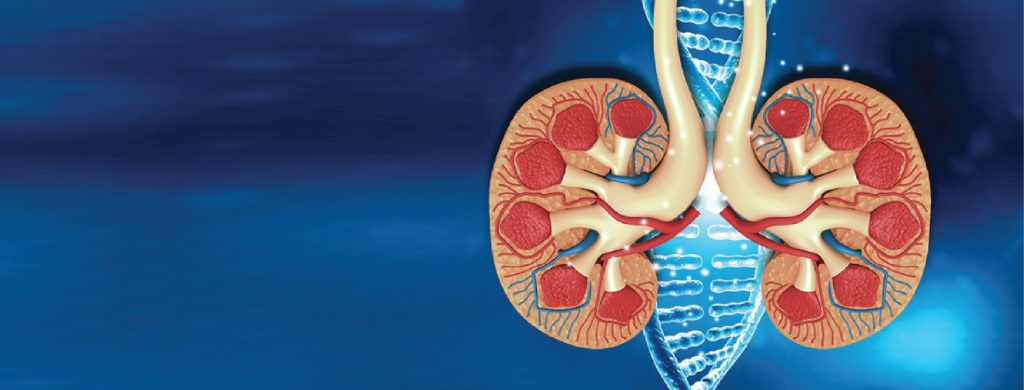Bananas are a widely consumed fruit, celebrated for their sweet taste, convenience, and numerous health benefits. They are rich in essential nutrients such as potassium, vitamin C, vitamin B6, and dietary fiber, making them a valuable addition to a balanced diet. However, there are specific circumstances and health conditions where consuming bananas may not be advisable. Understanding these situations can help individuals make informed dietary choices and maintain optimal health.
1. Individuals with Kidney Disorders
Bananas are notably high in potassium, with a medium-sized banana containing approximately 422 milligrams of this vital mineral. Potassium plays a crucial role in maintaining normal heart function and regulating blood pressure. However, for individuals with kidney disorders, particularly those with chronic kidney disease (CKD) or those undergoing dialysis, managing potassium intake becomes essential. Impaired kidney function can lead to hyperkalemia, a condition characterized by elevated potassium levels in the blood, which can cause serious health issues such as heart arrhythmias or cardiac arrest. Therefore, individuals with compromised kidney function are often advised to limit or avoid high-potassium foods, including bananas. It’s imperative for these individuals to consult with their healthcare provider or a registered dietitian to determine appropriate dietary restrictions.

2. People Taking Certain Medications
Certain medications can interact adversely with high-potassium foods like bananas. For instance, individuals on angiotensin-converting enzyme (ACE) inhibitors or potassium-sparing diuretics may experience increased potassium levels when consuming potassium-rich foods. ACE inhibitors, commonly prescribed for high blood pressure and heart failure, can raise potassium levels in the blood. Similarly, potassium-sparing diuretics, used to treat conditions like hypertension and edema, reduce the excretion of potassium through urine, potentially leading to hyperkalemia if combined with a high intake of potassium-rich foods. Therefore, individuals on these medications should monitor their potassium intake and consult their healthcare provider for personalized dietary advice.
3. Individuals with Latex Allergy
An often-overlooked concern is the cross-reactivity between latex and certain fruits, including bananas. Individuals with a latex allergy may experience allergic reactions upon consuming bananas due to similar proteins present in both. Symptoms can range from mild, such as itching and hives, to severe reactions like anaphylaxis. If you have a known latex allergy, it’s prudent to exercise caution with bananas and consult an allergist for comprehensive testing and personalized advice.
4. Diabetic Individuals Monitoring Carbohydrate Intake
Bananas contain natural sugars and carbohydrates, which can impact blood glucose levels. A medium banana has about 27 grams of carbohydrates, including 14 grams of sugar. While they have a low to medium glycemic index, meaning they have a moderate effect on blood sugar levels, individuals with diabetes need to account for these carbohydrates in their meal planning. Consuming bananas in moderation and pairing them with protein or healthy fats can help mitigate blood sugar spikes. It’s advisable for diabetic individuals to monitor their blood glucose responses to bananas and consult with a healthcare provider or dietitian for personalized guidance.
5. Infants at Risk for Type 1 Diabetes
Emerging research suggests that in genetically susceptible children, early introduction of certain foods, including bananas, may influence the risk of developing type 1 diabetes. A study conducted by the Finnish Institute for Health and Welfare indicated that children with a genetic predisposition to type 1 diabetes who consumed bananas, oats, and yogurt had an increased risk of developing the disease. Conversely, the consumption of berries appeared to have a protective effect. While these findings are preliminary and more research is needed, parents of at-risk children should consult with pediatricians or endocrinologists to tailor dietary choices appropriately.
6. Individuals with Gastroesophageal Reflux Disease (GERD)
The acidity of bananas changes as they ripen. Unripe bananas have more resistant starch, which can aggravate conditions like heartburn or GERD. As bananas ripen, these starches convert to sugars, making them less likely to cause such issues. Therefore, individuals with GERD or sensitive digestive systems may benefit from consuming fully ripe bananas to minimize discomfort.
7. Individuals with Irritable Bowel Syndrome (IBS)
Bananas contain fermentable carbohydrates that can cause bloating and discomfort in some individuals with IBS. While they are generally considered a low-FODMAP food, tolerance varies among individuals. Those with IBS should monitor their symptoms and consult with a healthcare provider to determine if bananas are suitable for their diet.

Conclusion
While bananas are a nutritious and versatile fruit beneficial for many, certain individuals should exercise caution or consult healthcare professionals before including them in their diet. Those with kidney disorders, individuals on specific medications, people with latex allergies, diabetics monitoring carbohydrate intake, infants at risk for type 1 diabetes, individuals with GERD, and those with IBS may need to limit or avoid bananas to prevent potential health complications. Personalized medical advice is crucial to ensure dietary choices align with individual health needs and conditions.

















